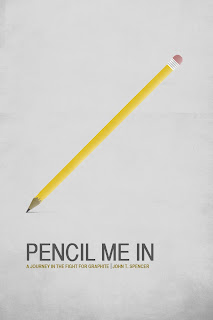Do you teach or do you educate?
In this video, it says that to teach is to show or explain how to do something, to encourage someone to accept as a fact or principle, to give information about or instruction in, to cause someone to learn or understand something, and to induce by example or punishment to not do something. But an educator illuminates; enlightens; inspires; empowers; gives intellectual, moral, and social instructions; and acts as a mentor/guide to the student to show them the way.
Teaching shouldn't just be about jumping through the hoops and giving students a robotic lesson. In order to be successful in creating young adults who are capable and understand the world around them, we must set the example and be passionate about our work. We must be up to date with the technology so we can prepare our students for what may come in the future. We must show them that "education is the kindling of a flame not the filling of a vessel" by taking that extra step and providing the most up to date and detailed lessons possible so each student can understand and comprehend the material. Like Rafe Esquith said, we should be so involved with our students and the lesson that we don't even realize that our hair is on fire.
This is exactly what I intend to do. I like things to be a certain way in my life, and I'm sure I will in my classroom as well. I cannot settle for just a mediocre lesson, I will want my students to be able to grasp the material and trust me and respect me. This may take time and be a struggle in the beginning, but because I am passionate about what I do, my students will succeed and it will be worth it in the long run. I believe every teacher should strive for this, and I wish I had more teachers like this as I grew up.
Don't Let Them Take Pencils Home
After reading and exploring this blog, I really appreciated what he had to say. Instead of focusing on the problems at hand, he searched for solutions. He offers several situations that could be fictional or nonfictional about modern day teaching. He shows the speed bumps teachers may run into with their principal or other teachers with real-life situations. He uses stories to show criticism and to get his point across which is a very creative way to show his points. He has characters that could apply to any teacher and uses them in situations any teacher could relate to. He uses history as a lens to discuss his own story and the current context of the twenty-first century. One of my favorite things he says is: "The larger, external conflict initially feels like it's about getting pencils into the hands of students. But it's more than that. It's fighting against a new, emerging factory system of education and yet going forward into the twenty-first century. It's teaching immigrant kids and not falling into the Assimilation School mentality. It's technology criticism and technology use." This is the ultimate conflict we face as teachers. This is what we must overcome in order to be successful in the modern day world. We must show our students how important it is to understand the material and be up to date with technology. Not only does he pinpoint specific things we must grasp and take a hold of as teachers, but he offers solutions and shows that being a successful teacher in the modern day world with technology IS possible. I really enjoyed exploring and reading his stories and I hope that teachers everywhere have the opportunity to read his work as well.

Did you read Spencer's "Don't Let Them Take the Pencils Home?" It has a very good point. Hint: keep an eye out for sarcasm.
ReplyDelete